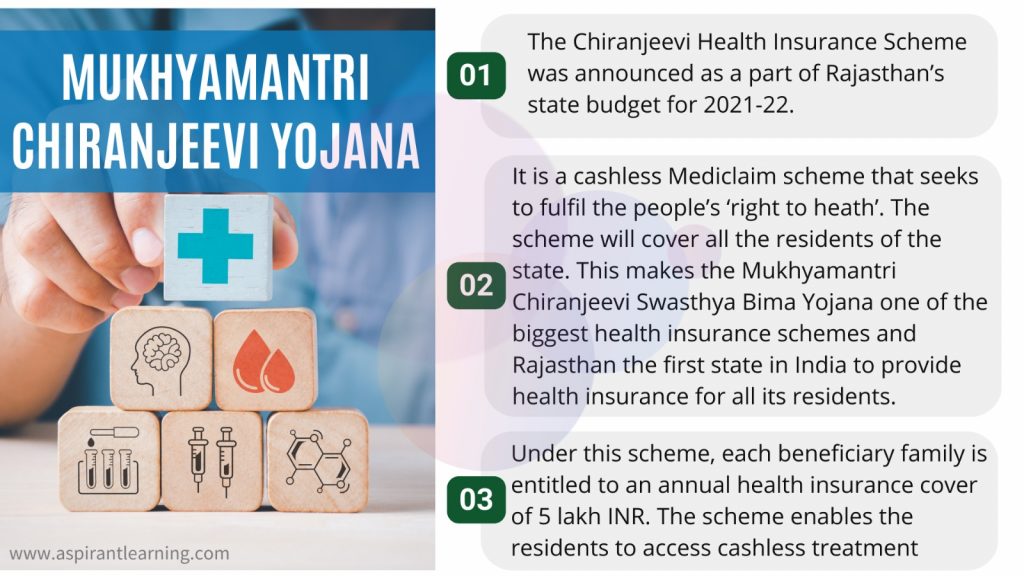News Highlights:
- Rajasthan’s Right to Health Bill: Recently, The Rajasthan government tabled the Right to Health Bill, “the first of its kind in India”, which aims to commit to quality and affordable health care services through government and private health care providers.
- Private hospitals demanding its withdrawal because of the provision for mandatory free-of-cost emergency treatment.
Key Takeaway:
Rajasthan Model of Public Health would include a Right to Health and measures for preventive, primary and curative care as envisioned by the World Health Organisation (WHO).
Key features in the Bill
- About:
- The right to health bill is part of the Rajasthan government’s bid to expand and strengthen medical services in the state.
- The Bill provides the right to health and access to healthcare for people in the state. This includes free health care services at any clinical establishment to state residents.
- The bill requires the state government to safeguard the right to health and maintain public health.
- Health Authorities will be set up at the state and district level. These bodies will formulate, implement, monitor, and develop mechanisms for quality healthcare and management of public health emergencies.
- Key Issues:
- There is no mechanism for paying private healthcare providers for giving away free medical services. This could render these businesses unprofitable commercially and violate Article 19(1)(g) of the Constitution.
- The District Health Authority must upload an action taken report on the web portal for complaints. The Bill does not specify who will have access to the report on the web portal. This may infringe on the patient’s right to privacy in medical cases.
- Implementing the right to health may increase the state’s financial obligation. The Bill does not provide for such additional costs.
- Other schemes:
- Recently, the Rajasthan chief minister approved Rs 117 crore towards the expansion of the facilities in Mahila Chikitsalaya (women’s hospital) at Sanganeri Gate in Jaipur. It provides Obstetrics care and Gynecological services to patients.
- The state has also ensured the health security of every family by providing free treatment up to Rs 25 lakh to the people through Mukhyamantri Chiranjeevi Swasthya Bima Yojana.
- Along with this, accident insurance of up to Rs 5 lakh is being given to the families registered in the scheme.
- Medicines and tests of the patients coming to government health facilities are being provided free.

Right To Health:
- Definition:
- The right to health, as with other rights, includes both freedoms and entitlements
- Freedoms include the right to control one’s health and body (for example, sexual and reproductive rights) and to be free from interference (for example, free from torture and non-consensual medical treatment and experimentation).
- Entitlements include the right to a system of health protection that gives everyone an equal opportunity to enjoy the highest attainable level of health.
- Constitutional provision:
- Article 21 of the Constitution of India guarantees a fundamental right to life & personal liberty. The right to health is inherent to a life with dignity.
- Directive Principles of State Policy (DPSP): Articles 38, 39, 42, 43, & 47 put the obligation on the state to ensure the effective realisation of the right to health.
- International Conventions:
- India is a signatory of the Article 25 of the Universal Declaration of Human Rights (1948) by the United Nations, which grants the right to a standard of living adequate for the health and well-being of humans, including food, clothing, housing and medical care and necessary social services.
Pic Courtesy: Freepik
Content Source: The Hindu



